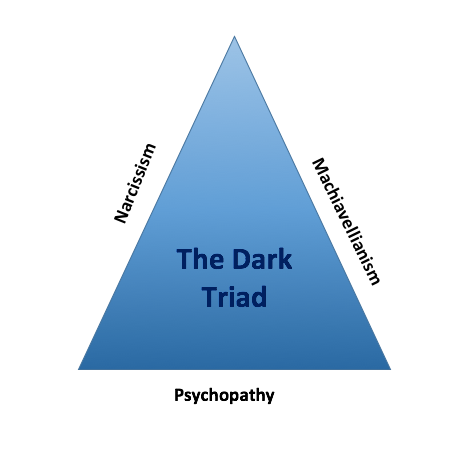Links zum Thema Menschen / Human beings
Literatur
- Jan van Rijckenborgh (1896-1968) niederländischer Gründer des Lectorium Rosicrucianums (*1946), Autor, Der kommende neue Mensch, Rozekruis Pers, 1954, 5. Auflage Januar 2006
- Prof. Dr. Gunter Dueck (*1951) deutscher Professor für Mathematik, Dozent, weltanschaulich-philosophischer Sachbuchautor, Topothesie. Der Mensch in artgerechter Haltung, Springer, 1. Auflage 27. September 2004
- Barbara Sher (1935-2020) US-amerikanische Karriere- und Lifestyle-Coach, Referentin, Autorin zum Thema Zielerfüllung,
Du musst dich nicht entscheiden, wenn du tausend Träume hast, Deutscher Taschenbuch Verlag (dtv), 1. Februar 2008
Elf Typen von Universalgenie-Menschen, Universalisten, Scannern
- Thomas Chrobok Codex Humanus. Das Buch der Menschlichkeit, PDF, Vitaminum ProLife, Detmold, 1. Januar 2016,
3. Auflage Februar 2020
- Rutger Bregman (*1988) niederländischer Historiker, Aktivist, Autor, Im Grunde gut. Eine neue Geschichte der Menschheit, Rowohlt Verlag, 10. März 2020
- Prof. DDr. Johannes Huber (*1946) österreichischer Mediziner, Gynäkologe, Theologe, Autor,
- Gunnar Kaiser (1976-2023) deutscher Philosoph, Lehrer, Vlogger, Schriftsteller, Die Abschaffung des Menschen. Wie das Metaversum uns überflüssig macht, Europa Verlag, 1. Auflage 10. November 2022
Die Folgen des Transhumanismus
↑
Literature (engl.)
- Charles Fillmore [LoC 515] (1854-1948) US American mystic, metaphysical interpreter of Biblical scripture, founder of Unity Church of Christianity within the New Thought movement, The Twelve Powers of Man, 1930, Martino Fine Books,
11. December 2011
- Jacob Bronowski (1908-1974) British mathematician, biologist, The Ascent of Man, Little, Brown and Company, London, August 1976, BBC Books, 1. April 2013
11 types of renaissance people, universalists, scanners
The 100: 1) Muhammad (570-632 AC) ♦ 2) Isaac Newton (1643-1727) ♦ 3) Jesus Christ (7/2 BC-26/36 AD) ♦ 4) Buddha (563-483 BC) ♦
5) Confucius (551-479 BC) ♦ 6) Paul of Tarsus (5-67 AD) ♦ 7) Cài Lún (50-121 AD) ♦ 8) Johannes Gutenberg (1398-1468) ♦ 9) Christopher Columbus (1451-1506) ♦ 10) Albert Einstein (1879-1955)
- Paul Johnson (1928-2023) English Jesuit, popular historian, speechwriter, journalist, author, Modern Times. The World from the Twenties to the Nineties, HarperPerennial, 1983, 1992; The World from the Twenties to the Nineties, Harper Perennial Modern Classics, revised edition 7. August 2001
- Paul Johnson (1928-2023) English Jesuit, popular historian, speechwriter, journalist, author, Intellectuals. From Marx and
Tolstoy to Sartre and Chomsky, Weidenfeld & Nicolson, 1988, Harper Perennial, revised edition 1. May 2007
- Barbara Sher (1935-2020) US American career/lifestyle coach, speaker, author on goal achievement, Refuse to Choose! A Revolutionary Program for Doing Everything That You Love, Rodale Books, 7. March 2006
- Charles Eisenstein, Ph.D. charleseisenstein.com (*1967) US American graduate in mathematics and philosophy, scholar on Eastern spiritual traditions, Chinese translator, associate professor, Penn State University, speaker, visionary author, The Ascent of Humanity, Panenthea Productions, 15. March 2007
See also the free of charge (f.o.c.) on-line essay From Opinion to Belief to Knowing, 8. December 2005
Investigating cynicism
- David P. Barash, Ph.D. (*1946) US American professor of psychology, University of Washington, evolutionary biologist specia-
lized on human aggression, sexual behavior of animals and people, peace studies, author, Homo Mysterious. Evolutionary Puzzles of Human Nature, Oxford University Press, 29. June 2012
- Satish Kumar (*1936) Indian Jain monk, activist, nuclear disarmament advocate, environmentalist, pacifist, editor of the environmental magazine Resurgence & Ecologist, Soil Soul Society. A New Trinity For Our Time, 30. September 2013
- Rutger Bregman (*1988) Dutch historian, activist, author, Humankind. A Hopeful History, Generic, 31. December 2019,
19. May 2020
- William von Hippel (*1963) US American Australian professor of social psychology, University of New South Wales, author,
The Social Leap. The New Evolutionary Science of Who We Are, Where We Come From, and What Makes Us Happy, Harper Wave, New York, 13. November 2018
↑
Externe Weblinks
↑
Weblinks zum Thema Menschen – Quora
Beiträge verfasst von Elfriede Ammann, präsentiert auf der kalifornischen Frage-und-Antwort Webseite Quora DE
- Beitrag Was ist der Dunning Kruger Effekt?, 2.6k Aufrufe · 32 Likes, 27. Januar 2019
- Beitrag Ich will, dass mein Freund mich bestraft. Warum bin ich so?, Referenz zu Masochismus, Sado-Maso, BDSM, 1.132 Aufrufe · 6 Likes, 13. März 2019
- Beitrag Wie kommt Beidhändigkeit zustande?, Referenz zu Leonard Shlain, Leonardo da Vinci, 101 Aufrufe · 1 Like,
18. März 2019
- Beitrag Was ist ein gutes Beispiel für Dunning-Kruger-Effekt?, 963 Aufrufe · 6 Likes, 4. April 2019
- Beitrag Wieso sagen Menschen, "Du kannst alles werden, was Du willst", wenn doch bekannt ist, dass das nicht stimmt?, Referenz zu Rankismus, Jemande / Niemande, Stolzkonzept, Narzissmus, 135 Aufrufe · 1 Like, 30. April 2019
- Beitrag Worin besteht der Unterschied zwischen einem Analytiker und einem Praktiker?, Referenz zu einer exemplarischen Geschichte von Robert Sternberg, 70 Aufrufe · 1 Like, 8. Mai 2019
- Beitrag Was gehört zu einer aufrichtigen Entschuldigung, die einen Neuanfang ermöglicht?, 680 Aufrufe · 16 Likes,
19. Mai 2019
- Beitrag Vor der Kamera lächelt man automatisch, während die Menschen, die auf gemalten Portraits ihr wahres Selbst zeigen wollen, meistens nicht lächeln. Weshalb lächelst du vor der Kamera?, 251 Aufrufe · 1 Like, 20. Juni 2019
- Beitrag Sind wir Menschen monogam oder polygam?, 1.6k Aufrufe · 17 Likes, 20. Juni 2019
- Beitrag Seit wann und weshalb gibt es die Beschneidung von Knaben? In welchen Kulturen entstand sie? Wo wird sie auch heute noch praktiziert?, 581 Aufrufe · 20 Likes, 2. Juni 2019
- Beitrag Wenn es zwei Arten von Menschen gibt, welche sind das?, Referenz zu der Zwei-Wölfe-Geschichte, 2.9k Aufrufe ·
29 Likes, 18. Juli 2019
- Beitrag Wer ist näher an der Realität: Optimisten oder Pessimisten?, 442 Aufrufe · 8 Likes, 19. Juli 2019
- Beitrag Warum leben manche Menschen als Einsiedler?, 204 Aufrufe · 2 Likes, 20. Juli 2019
- Beitrag Was hältst Du davon, dass Menschen von Natur aus nicht monogam sind und deshalb immer mehr Beziehungen und Ehen scheitern?, 275 Aufrufe · 13 Likes, 30. Juli 2019
- Beitrag Wie sind die Lebensbedingungen eines Volltaubblinden?, 209 Aufrufe · 7 Likes, 20. November 2019
- Beitrag Über welche fünf Grundfähigkeiten verfügt der Mensch?, 259 Aufrufe · 11 Likes, 24. November 2019
- Beitrag Welche Handlungen – außer Musik und Dramen – vereinen die meisten Menschen?, 97 Aufrufe · 2 Likes,
25. Dezember 2019
↑
External web links (engl.)
- Interview with Jonathan Haidt, Ph.D. (*1963) US American professor of social, cultural and moral psychology and ethical leadership, New York University Stern School of Business, author, Why social media is terrible for multiethnic democracies, presented by the US American news and opinion website Vox owned by Vox Media, Sean Illing, 5. January 2018
- Q&A contribution What is the meaning of "all men are created equal"?, presented on the Californian question-and-answer website Quora, Elfriede Ammann, 627 views · 1 upvote, 22. January 2019
- Blog article by Scott Barry Kaufman (*1979) US American humanistic psychologist, scientific director of the Imagination Institute in the Positive Psychology Center, University of Pennsylvania, science writer researching intelligence, personality, and creativity, The Light Triad vs. Dark Triad of Personality. New research contrasts two very different profiles of human nature, presented by the US American popular science magazine Scientific American, 19. March 2019
- Q&A contribution Do you believe that “we are the sum of 5 people around us” and what are some examples of it being accurate, presented on the Californian question-and-answer website Quora, Elfriede Ammann, reference to Dunbar’s number, 119 views · 2 upvotes, 15. August 2019
↑
Audio- und Videolinks
- Videovortrag von Armin Risi armin-risi.ch (*1962) Schweizer Philosoph, Referent, Dichter, Sachbuchautor, Armin Risi Vor-
trag: Der Mensch – ein multidimensionales Wesen, veranstaltet von dem "Kongress Regentreff", Regen, Bayern, Juni 2011, YouTube Film, 1:23:04 Dauer, eingestellt 4. Juli 2014
- Video Die menschliche Natur, YouTube Film, 3:29, eingestellt 24. May 2012
Exzerpt aus ZEITGEIST: MOVING FORWARD, Deutsche Version
Linkloses Medienangebot
- Video TV Interview mit Richard David Precht (*1964) deutscher Philosoph, Dozent, Fernsehmoderator, Publizist, Keine Identi-
tät ohne Liebe, präsentiert von dem ersten Fernsehprogramm des Schweizer Radio und Fernsehens (SRF) SRF 1 und 3Sat, wöchentliche Diskussionsrunde Sternstunde Philosophie, Gastgeberin Monika Maria Trost, 57:04 Minuten Dauer, gesendet
8. November 2009
↑
Audio and video links (engl.)
- Video interview with |Her Holiness Sai Maa, first woman ever bestowed the title of Jagadguru Bhaktimayi Meera Bai in the
five thousand year history of the Vaishnav Saint Society, Sai Maa on Humanity in Unity, S3, episode 37, filmed in Sacramento, presented by the US American Conscious Media Network via Gaia TV, host Regina Meredith, 26:13 minutes duration, posted September 2007 Subject to fee
- Video presentation by Dr. Albert Low albertlow.ca British Zen Buddhist, former human resources executive, author of The Origin of Human Nature, The Origin of Human Nature A Zen Buddhist looks at Evolution, YouTube film, minute 1:40, 8:53 minutes duration, posted 28. July 2008
Commenting on the simplistic theory of evolutionism, purported by the militant Bright and neodarwinian biologist Richard Dawkins
- Video interview with Jonathan Haidt, Ph.D. (*1963) US American professor of social, cultural and moral psychology, New York University Stern School of Business, Bees in a Hive, presented by the US American web portal Big Think, 7:48 minutes du-
ration, posted 11. June 2008
- Video class day lecture by Robert Maurice Sapolsky, Ph.D. (*1957) US American professor of neurology, neurological sciences, neurosurgery and biological sciences, Stanford University, The Uniqueness of Humans, sponsored by the Stanford University, commencement weekend with graduating class, 13. June 2009, YouTube film, 37:27 minutes duration, posted
17. June 2009
Animals ⇔ humans, aggression, theory of mind, the Golden Rule (Tit for Tat) and pleasure
- Video presentation by Robert Maurice Sapolsky, Ph.D. (*1957) US American professor of neurology, neurological sciences, neurosurgery and biological sciences, Stanford University, The uniqueness of humans, presented by TED Talks, 37:26 mi-
nutes duration, filmed September 2009, posted January 2010
- Robert Jensen, Ph.D. (*1958) US American professor of journalism, University of Austin, Texas, Robert Jensen – What Does It Mean to Be a Human Being – Kerrville UU 4-10-112011.mov, sponsored by the Unitarian Universalist Fellowship, Kerrville, Texas, 10. April 2011, YouTube film, 42:10 minutes duration, posted 4. June 2011
- Video interview with Dr. Gregory L. Little, US American author, DNA ~ A New Era in Anthropology – Dr. Gregory L. Little, presented by the host Freeman Fly, YouTube film, 1:08:29 duration, aired ~ October 2019
- Video documentary by Robert Sepehr, US American anthropologist specializing in linguistics, archeology, paleobiology (ar-
cheogenetics), producer, author, Origins of the First Europeans, YouTube film, 1:08:42 duration, posted 15. February 2024
The indigenous populations of Europe are largely descended from three distinct lineages. This presentation covers the most current archeological and genetic evidence describing who they were, where they originated from, when they arrived, and how modern Europeans came to be.
↑
|








